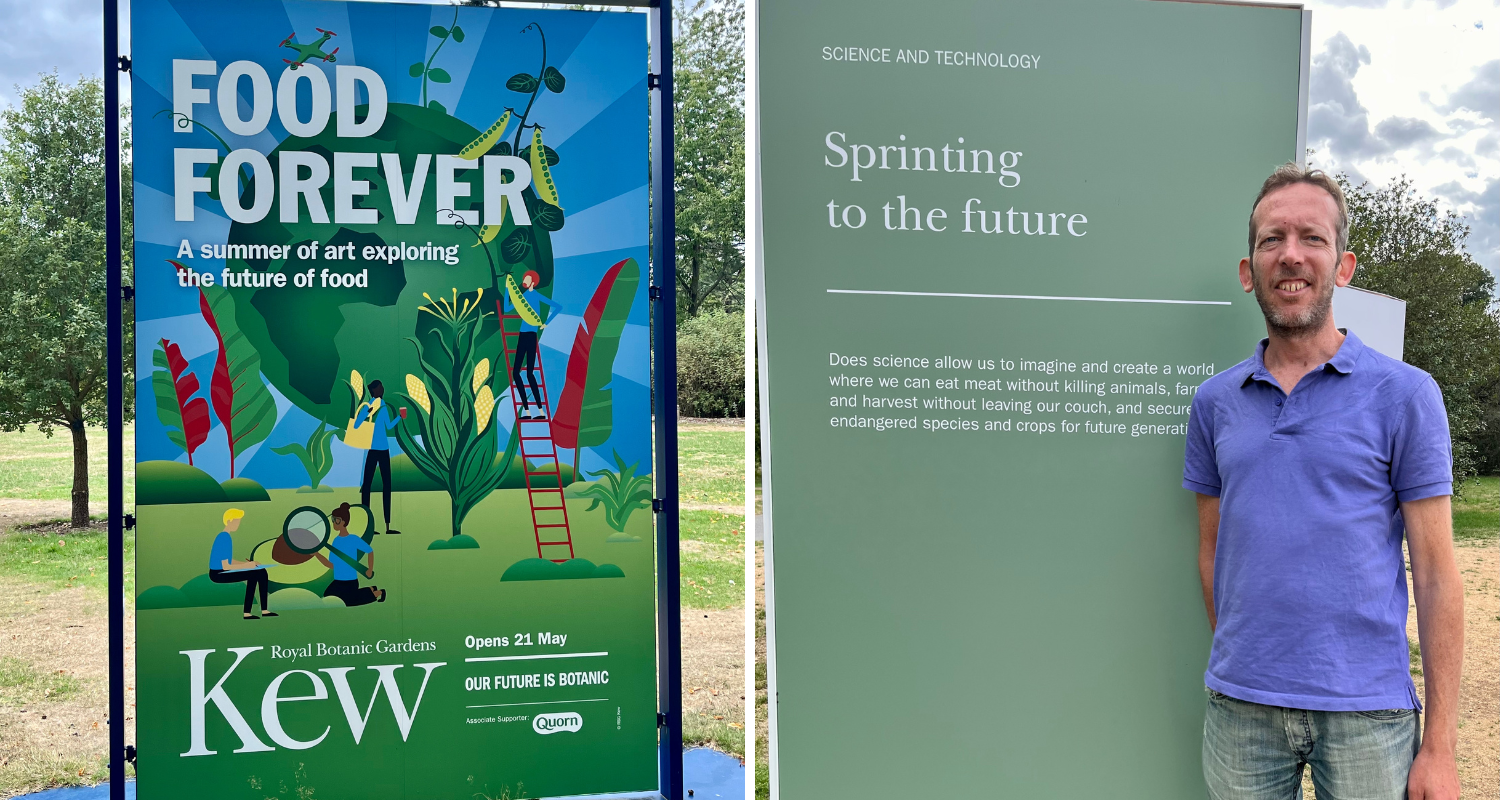
Season 4, Post 35: Food Forever
Fancy some akkoub, pandanus or morama in your meal? In the future, these may be as commonplace as we consider garlic, pineapple, or cashew currently. Your author (and his long-suffering family) learned more about these novel food substances and more at a recent exhibition at London’s Kew Gardens. Beyond being a beautiful day out, a trip to Food Forever is highly relevant for anyone interested in the future.
Food is something that touches us all daily. It is a large and complex topic that impacts both our well-being and livelihoods. As we have discussed elsewhere, feeding a growing global population with expectations of increasingly higher living standards constitutes a major challenge, particularly in the context of climate change. It will test the capacity and resilience of existing food systems. Do not forget – as information boards at Kew highlight – that just 15 crop plants contribute to 90% of humanity’s energy intake.
Against this background, it is integral to identify future ways of feeding the world. We have argued in the past that there is a strong logic to diversify away from unconventional sources of protein. Beyond animal meat, consider not just fish, but also insects as well as plant-based alternatives. Kew makes some of its own suggestions for (plant-based) foods of the future. The akkoub is a thistle-like plant that grows almost exclusively on rocky soils in the Mediterranean and Middle East. Its flower-head can be consumed as a vegetable in its own right and can be added to stews. Next up is the pandanus, a small trunked tree known sometimes as the screw pine. It can be found in coastal lowlands from Hawaii to the Philippines and its fruit shares some similarity with the pineapple. Finally, the morama bean is a drought tolerant perennial native to arid parts of southern Africa. It has a certain commonality with the cashew and can either be boiled to make a starch paste or pulped to yield a milk/ butter substitute.
An additional part of the exhibition highlights practical ways in which we can all currently make a difference to help combat biodiversity loss and mitigate the impacts of climate change. Kew counsels that we should eat more plants to minimise meat and dairy, commit to reducing food waste and look to grow more of our own food wherever possible. Selecting options with the lowest carbon footprint off menus when out also makes good sense. Many of your author’s regular choices reflect the above. From an investment perspective, the direction of travel should favour selected food innovation businesses and circular economy plays.
8 September 2022
The above does not constitute investment advice and is the sole opinion of the author at the time of publication. Past performance is no guide to future performance and the value of investments and income from them can fall as well as rise.
Photos taken by author.
Alex Gunz, Fund Manager
Disclaimers
The document is provided for information purposes only and does not constitute investment advice or any recommendation to buy, or sell or otherwise transact in any investments. The document is not intended to be construed as investment research. The contents of this document are based upon sources of information which Heptagon Capital LLP believes to be reliable. However, except to the extent required by applicable law or regulations, no guarantee, warranty or representation (express or implied) is given as to the accuracy or completeness of this document or its contents and, Heptagon Capital LLP, its affiliate companies and its members, officers, employees, agents and advisors do not accept any liability or responsibility in respect of the information or any views expressed herein. Opinions expressed whether in general or in both on the performance of individual investments and in a wider economic context represent the views of the contributor at the time of preparation. Where this document provides forward-looking statements which are based on relevant reports, current opinions, expectations and projections, actual results could differ materially from those anticipated in such statements. All opinions and estimates included in the document are subject to change without notice and Heptagon Capital LLP is under no obligation to update or revise information contained in the document. Furthermore, Heptagon Capital LLP disclaims any liability for any loss, damage, costs or expenses (including direct, indirect, special and consequential) howsoever arising which any person may suffer or incur as a result of viewing or utilising any information included in this document.
The document is protected by copyright. The use of any trademarks and logos displayed in the document without Heptagon Capital LLP’s prior written consent is strictly prohibited. Information in the document must not be published or redistributed without Heptagon Capital LLP’s prior written consent.
Heptagon Capital LLP, 63 Brook Street, Mayfair, London W1K 4HS
tel +44 20 7070 1800
email [email protected]
Partnership No: OC307355 Registered in England and Wales Authorised & Regulated by the Financial Conduct Authority
Heptagon Capital Limited is licenced to conduct investment services by the Malta Financial Services Authority.



